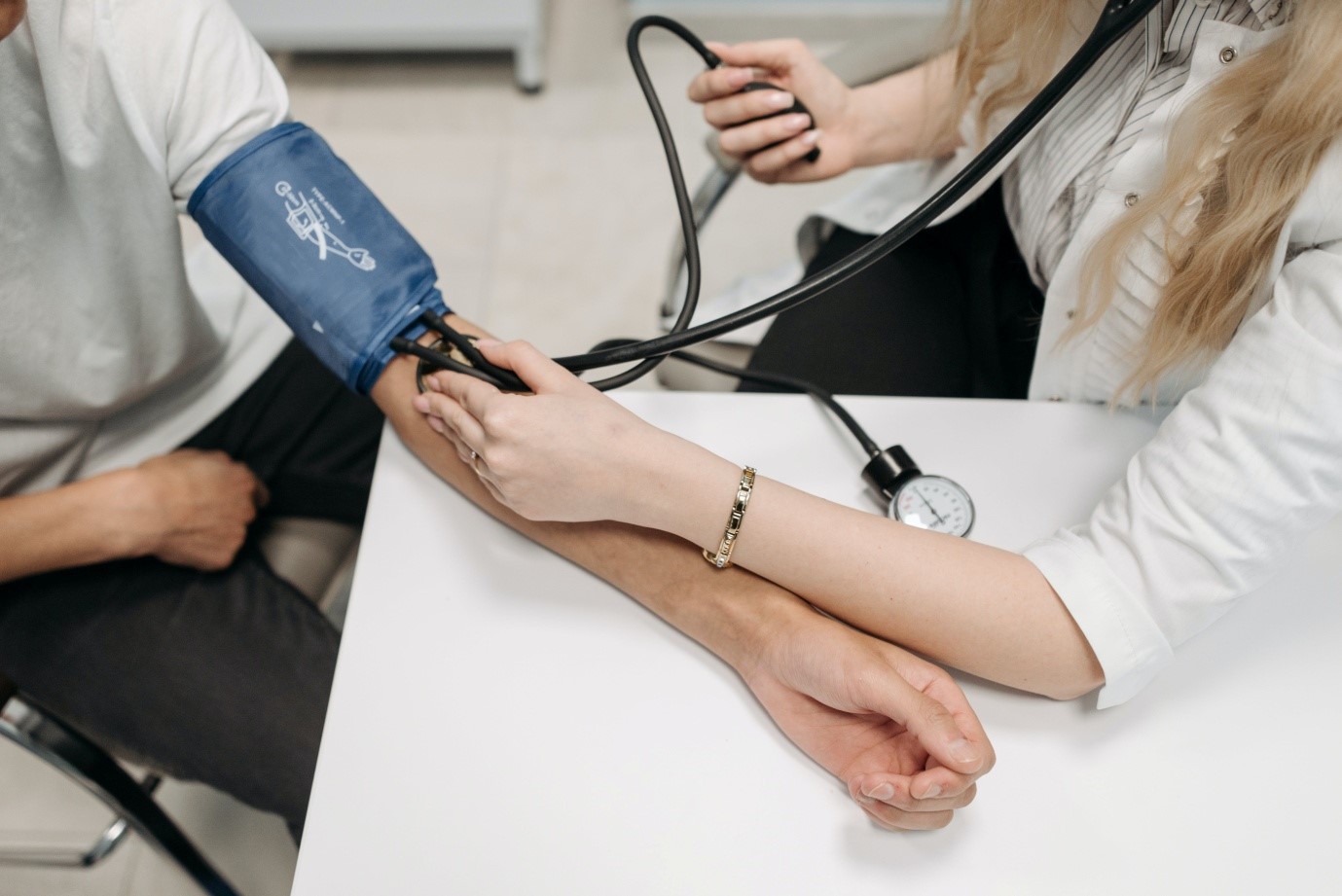




Hypertension, commonly known as high blood pressure, is a prevalent health condition that affects millions of people worldwide. Despite its prevalence, many individuals may not be aware of its existence or may underestimate its potential impact on their health. In this blog, we will explore the intricacies of hypertension, its symptoms, causes, diagnosis, selfcare and treatment options, with a strong emphasis on the importance of consulting healthcare professionals for personalized advice.
One of the challenges associated with hypertension is that it often presents with no noticeable symptoms. This silent nature can make it challenging for individuals to identify the condition without regular monitoring of their blood pressure.
However, in some cases, individuals may experience symptoms such as headaches, shortness of breath, dizziness etc. It is crucial to note that relying solely on symptoms can be misleading, and a proper diagnosis through blood pressure measurements is essential.
Hypertension can result from various factors, and its origins are often multifaceted. Some common causes include:
It’s essential to recognize these factors and work towards minimizing their impact through proactive measures.
Accurate diagnosis of hypertension is crucial for effective management. The UK’s National Institute for Health and Care Excellence (NICE) recommends regular blood pressure monitoring for all adults. A diagnosis is typically made when a person consistently records high blood pressure readings during multiple appointments.
The NHS website provides guidelines for blood pressure categories, which are:
“Individuals falling within the elevated or hypertensive range should consult a healthcare professional for further assessment and guidance. Everyone’s blood pressure can be slightly different. A reading considered high or low for you may be normal for someone else.”
Maintaining a record of your blood pressure readings at home is an excellent way to actively participate in your health management. Calculating a 7 day Average may help you understand your blood pressure further. To calculate a 7-day average, follow these steps:
Hypertension management often involves a combination of lifestyle modifications and, in some cases, medication. It’s important to note that self-treatment based on internet information can be risky, and consultation with healthcare professionals is paramount.

Prescription medications play a pivotal role in managing hypertension, particularly when lifestyle adjustments prove inadequate. Healthcare providers may recommend various medications to effectively lower blood pressure and mitigate potential complications. It’s crucial to note that the choice of medication depends on individual health factors, and healthcare professionals will tailor the prescription to suit specific needs.
Commonly prescribed antihypertensive medications include:
Adhering to the prescribed medication regimen is essential for effective blood pressure control. It is equally crucial to attend regular follow-up appointments as healthcare providers monitor progress, assess potential side effects, and make adjustments to the treatment plan if necessary. Open communication with healthcare professionals ensures a collaborative approach, optimizing the management of hypertension and promoting overall cardiovascular health.
While hypertension may often be manageable through lifestyle changes and medication, certain situations warrant immediate medical attention.
Seek urgent medical advice if you experience:
Understanding hypertension is the first step towards effective management and prevention of complications. Regular monitoring, lifestyle modifications, and collaboration with healthcare professionals are essential components of a holistic approach to managing high blood pressure. By prioritizing proactive health measures and seeking timely medical advice, individuals can work towards maintaining optimal cardiovascular health and overall well-being.
References
• NHS. High blood pressure (hypertension). Retrieved from https://www.nhs.uk/conditions/high-blood-pressure-hypertension/
• NICE. Hypertension in adults:. Retrieved from https://www.nice.org.uk/guidance/ng136/resources/hypertension-in-adults-diagnosis-and-management-pdf-66141722710213
• PatientInfo. High Blood Pressure. Retrieved from https://patient.info/heart-health/high-blood-pressure-hypertension